Cloud file sharing is the process of exchanging files between different user accounts via cloud-based file-sharing platforms. It involves a system where users are allocated storage space on a server and are allowed to perform read and write operations on the data they save in their space online.
People share files online every day, thanks to the rapid advancement of information technology. While social media is used to distribute a lot of stuff, cloud storage services offer a safer way to store and share files online.
A popular service is Dropbox and while it offers a free version, it is not open source. There are also many Dropbox alternatives for Linux, but this article focuses on the best free open-source cloud file-sharing platforms.
With so many cloud-based file-sharing solutions available, in this article, we’ve compiled the best free open-source cloud file-sharing platform for businesses and personal use.
1. NextCloud
NextCloud is arguably the most popular open source cloud file sharing service revolutionizing the way individuals and businesses manage and share their data. Apart from sharing files, it allows you to share calendars, contacts, and emails and includes professional features like team collaboration and data synchronization and it packs text and video chat apps.
Users can access, share, and edit documents in real-time, develop productivity and efficient teamwork. It prioritizes privacy by offering self-hosted solutions giving users control over their data.
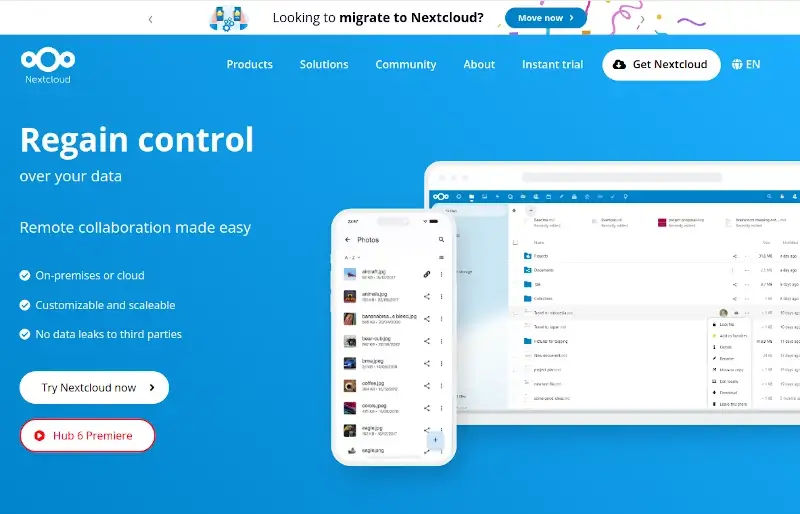
2. Ceph
Ceph is an open-source distributed object, block, and file storage platform that uses a POSIX-compliant network file system in order to provide large data storage, high performance, and optimum support for legacy applications.
Leveraging a unified storage cluster enables efficient data management and retrieval. With its robust architecture, Ceph guarantees reliability and performance, making it a go-to solution for cloud-based file-sharing platforms.
Its open-source nature encourages innovation and customization, enabling organizations to customize solutions according to their specific needs.
Ceph’s versatility, reliability, and commitment to open-source principles position it as a leading choice in the rapidly evolving landscape of cloud-based file-sharing
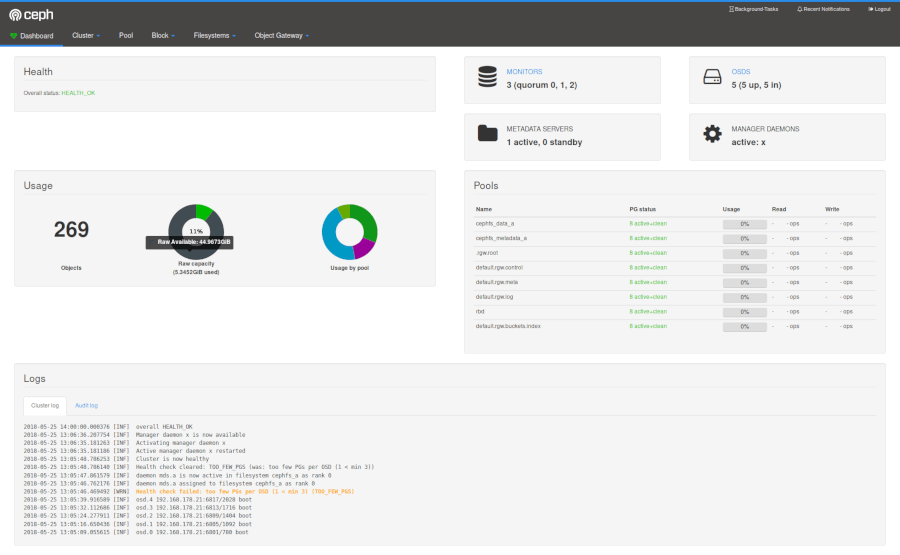
3. Aurora Files
Aurora Files is a developer-friendly, encrypted file-sharing software. It has support for Google Drive and Dropbox as network logins, Zipped file viewer, and MS Office file viewer.
This system offers secure and efficient file-sharing capabilities, ensuring seamless collaboration and access to documents from anywhere. With a commitment to transparency and user control, Aurora Files enables users with a customizable and scalable solution.
Its open-source nature fosters community collaboration, enhancing the platform’s features continuously. As a reliable and user-friendly cloud file-sharing solution, Aurora Files provides a versatile and secure environment for individuals and organizations seeking advanced data management and sharing capabilities
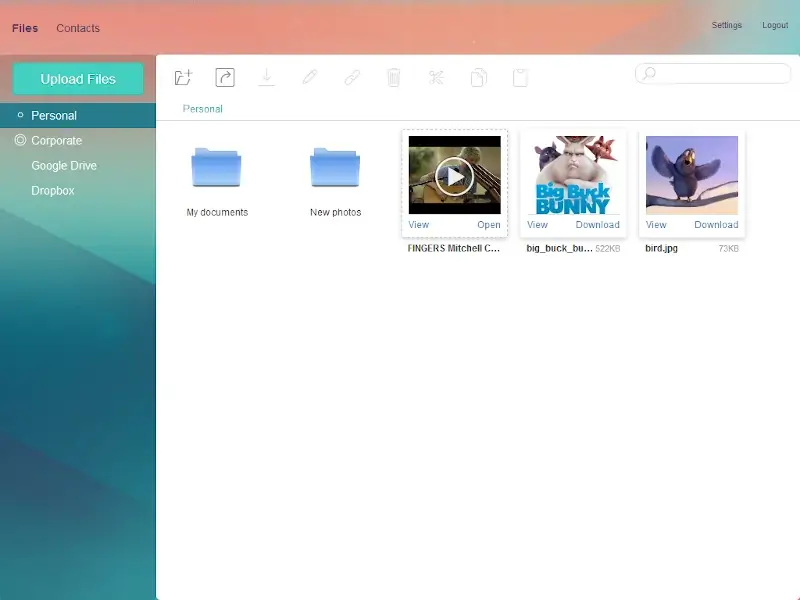
4. YouTransfer
YouTransfer is a dynamic open-source cloud service that facilitates seamless and secure file transfers. It enables individuals and businesses to share various file types, prioritizing user control and privacy over the internet effortlessly.
As an open-source project, YouTransfer allows for community collaboration, fostering continuous improvement and adaptability. With its intuitive design and commitment to transparency, YouTransfer stands out as a reliable and efficient choice for those seeking an open-source cloud file-sharing platform.
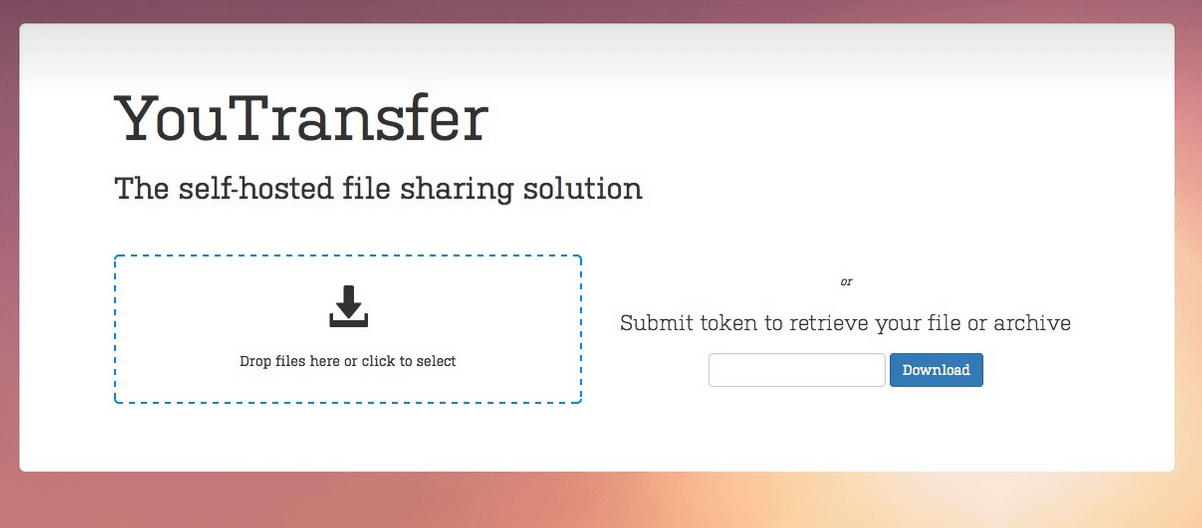
5. Pydio Cells
Pydio Cells is an innovative open-source cloud file-sharing and collaboration management platform, that aims to provide reliable file hosting, synchronization, and sharing. It has a strong emphasis on simplicity and security which can be deployed on any server type of your choice.
It Supports multi-platform access, including desktop and mobile, ensuring flexibility in file sharing. Noteworthy features include versioning, access control, and real-time synchronization, enhancing productivity.
As a privacy-centric solution, it prioritizes data protection and compliance. Pydio Cells stands as a robust choice for organizations seeking a reliable and customizable cloud file-sharing platform with the added benefit of open-source transparency.
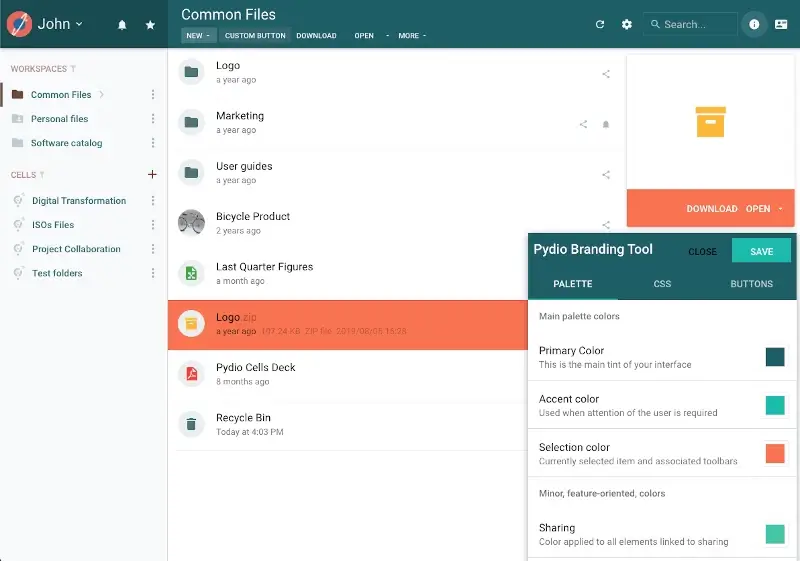
LinShare aims to provide an enterprise-grade cloud file-sharing solution that addresses confidentiality and traceability for organizations file sharing requirements.
It’s free with additional IT team support that provides top-notch services, ensuring optimal compatibility with your network.
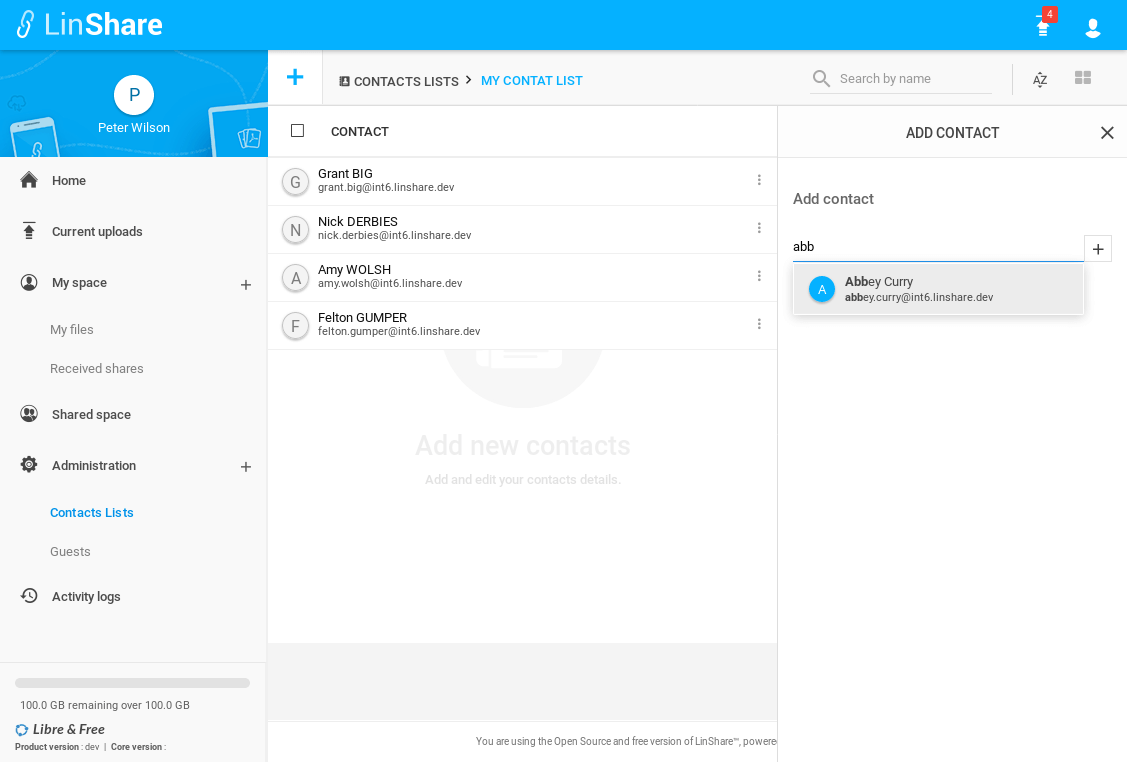
NitroShare is a cross-platform network file transfer app designed to extremely simplify sharing files while maintaining efficient speeds.
Its user-friendly interface allows users to transfer files between different devices and operating systems. The platform’s commitment to transparency and community-driven development allows continuous improvement and adaptability to user needs.
NitroShare embodies the spirit of open-source collaboration, providing individuals and organizations with a reliable solution for effortless and secure file sharing in the ever-evolving digital landscape.
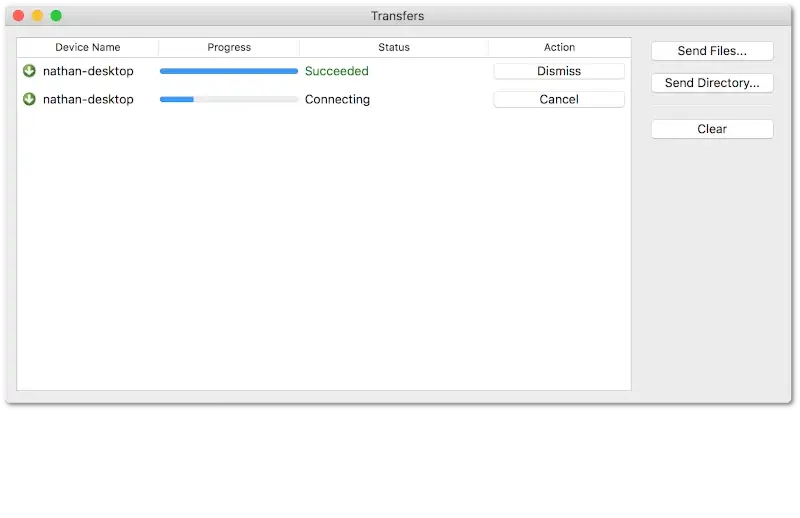
OnionShare is an open-source platform that enables its users to share files, host websites, and chat with friends through the Tor network without jeopardizing their security or anonymity.
OnionShare is different when compared with regular cloud services because it doesn’t depend on a central hub, giving users more control. This decentralized setup is extra secure, especially for confidential information, which is great for whistleblowers, journalists, and activists.
OnionShare really cares about making users feel powerful, and they make sure everything is super secure. So, if you need a top-notch and reliable way to share files securely in the cloud, OnionShare is a great choice.
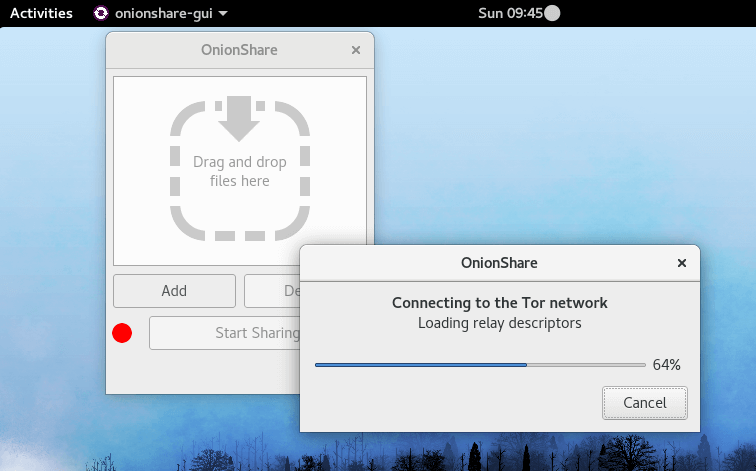
9. FileDrop
FileDrop is a lightweight web-based UI for sharing files helping people and groups easily share and sync files securely. You can use it as a standalone server in trusted LANs but it is mostly used together with Sandstorm, an open source web-based productivity suite.
FileDrop is user-friendly, letting you drag and drop files easily, and also lets users collaborate with others in real-time, making work more efficient.
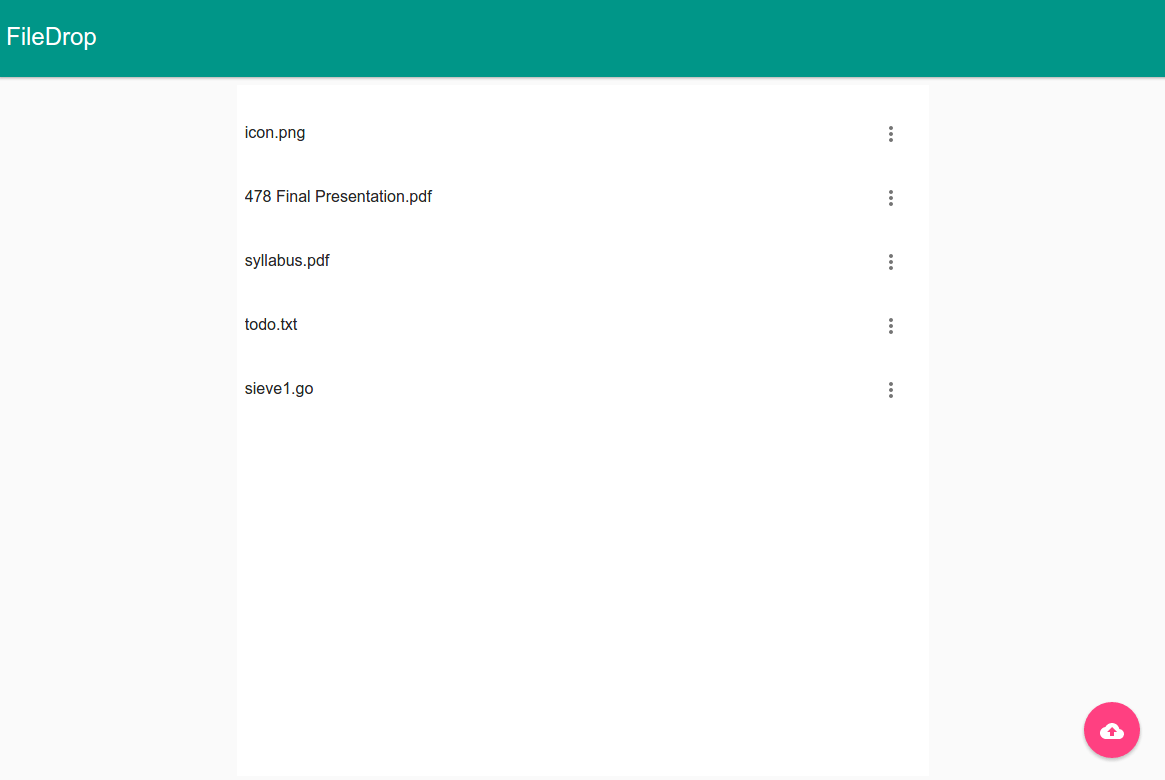
10. ProjectSend
ProjectSend is a private clients-oriented web service that provides a file-sharing platform for teams complete with features like uploads auto-expiration, usage logs, user permissions, etc.
With an intuitive interface, ProjectSend streamlines the process of uploading, downloading, and organizing files, making it an ideal solution for teams and individuals alike.
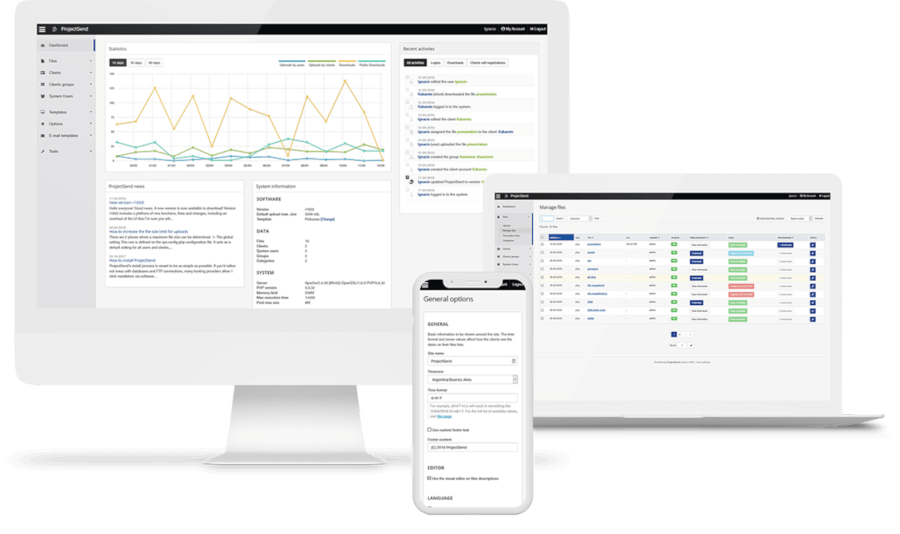
11. OwnCloud
OwnCloud is a self-hosted file sync and sharing solution that allows users to save, view, and share files, documents, images, and other media across many devices. It is designed to provide people and businesses with a safe and configurable cloud storage solution.
Key features include:
- Using Spaces and Web Office, you can collaborate on the same files with others by creating, editing, and commenting on documents, spreadsheets, and presentations.
- With features like encryption, password protection, expiration dates, and audit logs, you can manage who has access to your data.
- Infinite Scale can manage massive volumes of data, allowing you to store and sync files of unlimited size and number.
- You control where your data is stored and processed, with options including cloud hosting, hybrid hosting, and self-hosting.
Overall, OwnCloud has grown in popularity as a versatile, self-hosted cloud storage solution for people, businesses, and organizations seeking better control, security, and customization in their file sharing and collaboration requirements.
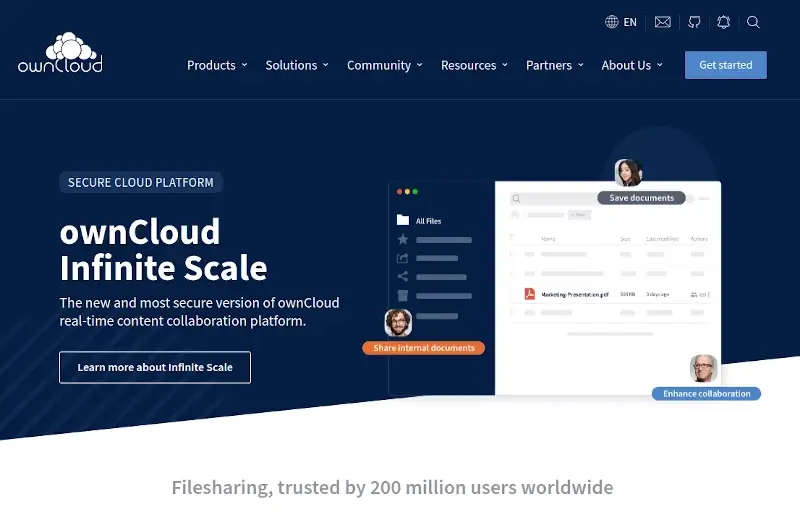
12. Seafile
Seafile is cross-platform and open-source software designed to provide a dependable and secure environment for storing, synchronizing, and sharing information between devices.
It is tailored for both personal and enterprise use, with a focus on data security, performance, and collaboration features. Seafile packs the following functionalities out of the box:
- You can use Seafile mobile clients to access files on Android and iOS devices. Besides that, cached files can be used without a network connection.
- Seafile preserves snapshots for folders and versions for files. Users can conveniently restore a file or folder to an older version. Snapshot for folders is a useful tool for protecting files against ransomware.
- You can organize your team members and files by creating groups and subgroups. You can also create and modify documents, spreadsheets, and presentations using the built-in Wiki feature.
- You can use passwords to encrypt your libraries and sync them via encrypted channels.
- Reliable and seamless file synchronization for enhanced productivity.
- Seafile server’s core is crafted in the C programming language, keeping it compact while delivering outstanding performance.
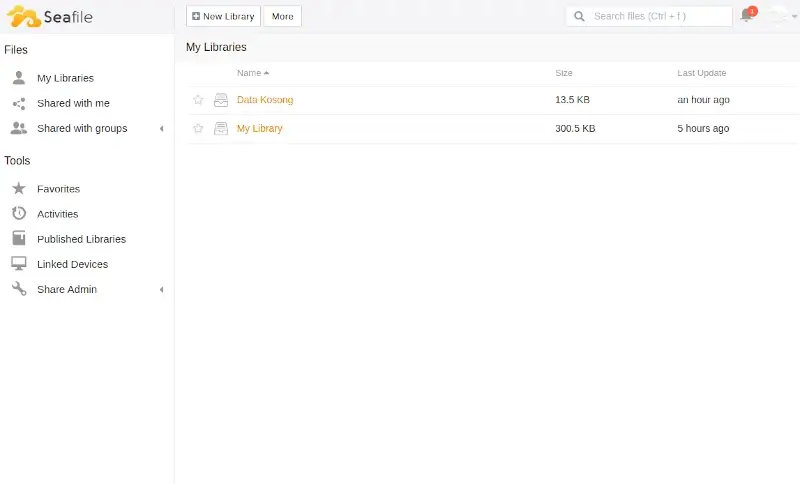
13. Syncany
You can use Syncany to securely backup and share specific folders on your computers using any type of storage. In addition, it offers data encryption as well as exceptional storage type and provider flexibility.
However, this project seems to have ceased active development and lacked recent updates or maintenance, which could lead to compatibility or security issues with newer operating systems or storage providers.
Therefore, It is crucial to note that Syncany’s status, functionality, and compatibility with current platforms may have changed or encountered limits owing to a lack of recent updates or continuing development.
When looking for file synchronization and cloud storage choices, always proceed with caution and examine alternative solutions that are actively maintained and supported.’
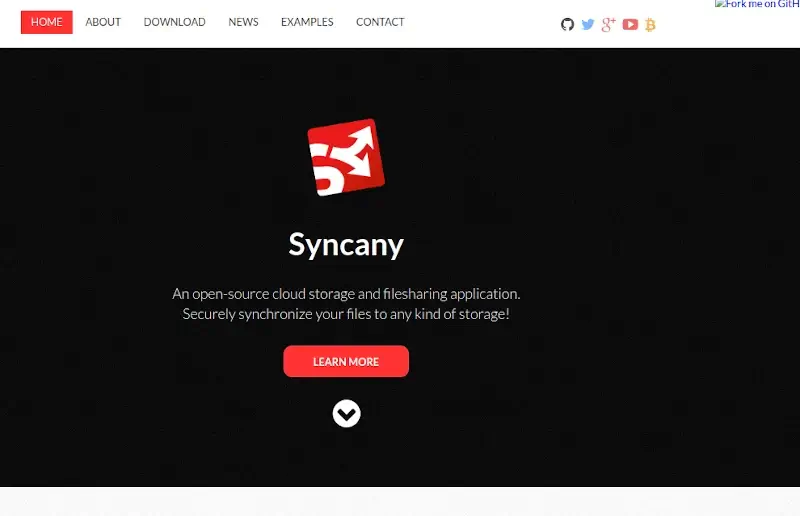
14. Cozy Cloud
Cozy offers a personal cloud platform where users can store and manage their data, such as documents, contacts, calendars, and more. It stresses data ownership and privacy by allowing users to host their Cozy instance on their server or use reliable hosting services.
With Cozy, you can connect to numerous internet services and apps, such as banks, health insurance, or e-commerce sites, to access your data in a centralized location.
Top features include:
- It places a strong emphasis on data security by providing encryption and user-controlled access permissions to ensure data privacy.
- It is built on a modular architecture, allowing users to enhance its functionalities using apps and integrations accessible in the Cozy Store.
- Cozy allows for data synchronization across devices.
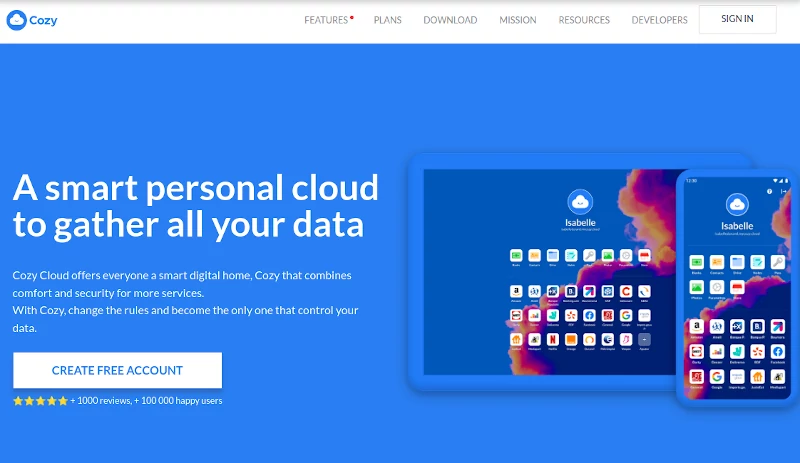
15. GlusterFS
GlusterFS is a distributed file system that provides scalable and flexible storage solutions for cloud computing, data analytics, and other storage-intensive applications. It is renowned for its ability to combine multiple storage resources into a single, unified namespace.
Key features include:
- It is highly scalable, with the ability to scale from a few terabytes to many petabytes without disturbing the existing infrastructure.
- GlusterFS enables replication and redundancy, which ensures data integrity and high availability.
- Using the online interface or the desktop and mobile apps, you can access, sync, and share your files and folders from any device.
- It has a block-level file syncing technique that can handle large files while optimizing bandwidth usage. It also includes a fast and dependable syncing algorithm that can sync 10,000 tiny files in one minute.
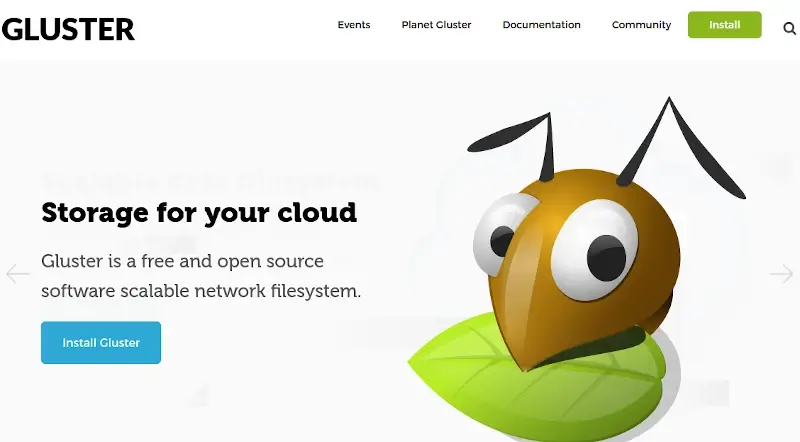
16. Git-annex
Git-annex is an open-source software solution that allows you to use Git to manage large files without keeping the file contents in Git. It can sync, backup, and preserve your data both online and offline, using a variety of storage backends.
It also encrypts your data and makes it available from any git repository. To use Git-annex, you must have a git repository that has been configured using Git-annex.
You can either build a new repository or clone one from GitHub or elsewhere. Then, using the git-annex add command, you can add files to the annex, which will store the file contents in a special directory called git/annex/objects/ and replace the files with symlinks to the contents.
Overall, Git-annex is particularly useful for developers or teams working with Git version control and dealing with large files, as it enables them to manage these files conveniently without compromising the efficiency of their repositories.
Its ability to smoothly integrate with Git while managing huge files makes it a popular choice for data-intensive projects.
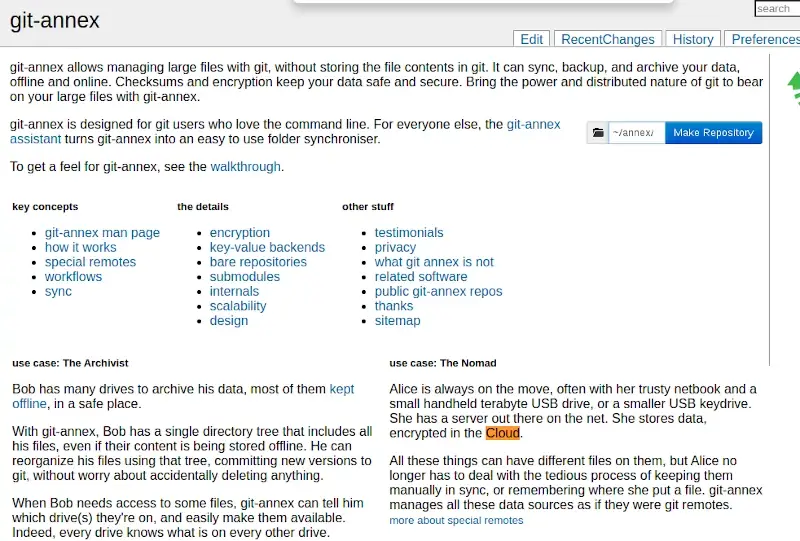
17. XigmaNAS
XigmaNAS is open-source Network Attached Storage (NAS) software that can be installed on virtually any hardware platform, it enables the sharing of computer data storage over a computer network. It is designed to provide an easy-to-use interface for organizing and sharing files across a network.
Key features include:
- With XigmaNAS, users can manage many types of storage, such as disks, ZFS pools, RAID setups, and network shares.
- Built on FreeBSD, XigmaNAS provides a robust platform for creating and managing centralized storage systems.
- It supports SMB/CIFS (Windows file sharing), NFS (Unix file sharing), AFP (Apple file sharing), FTP, SSH, and other network services, making it compatible with a variety of operating systems.
- Provides data protection capabilities such as RAID setups, encryption choices, and backup functionality to prevent data loss.
- XigmaNAS provides a web-based graphical user interface accessible and managed through a browser.
- Users can enhance the system’s capabilities by using plugins and extensions.
XigmaNAS is appropriate for individuals or small-to-medium-sized enterprises wanting to set up a network storage system without investing in dedicated NAS hardware.
Its user-friendly interface and diversity of services make it a popular choice among those looking to build their own NAS system.
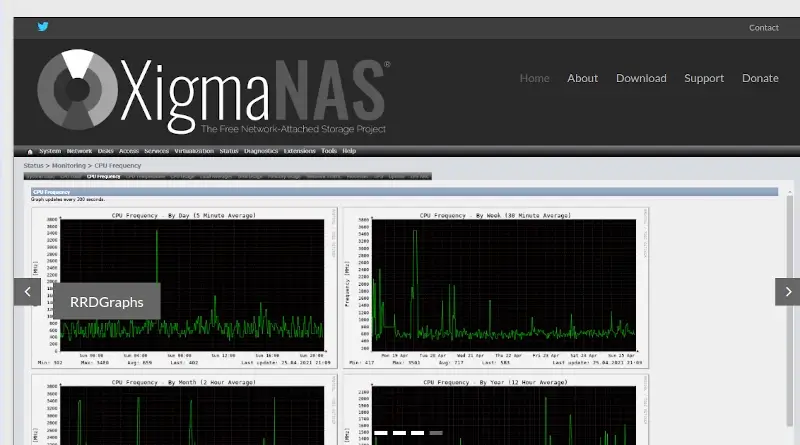
18. Yunohost
YunoHost is a feature-rich platform that makes self-hosting various internet services on your server easier. It provides an easy-to-use interface for managing and deploying web applications, email servers, file sharing, and other services, making it accessible to users with limited technical knowledge.
Sharing files on YunoHost is possible using a variety of applications offered on the platform. Nextcloud is one of the most renowned and adaptable ways to share files on YunoHost.
Nextcloud is a self-hosted open-source file synchronization and sharing platform that offers a safe and private cloud solution for storing, accessing, and collaborating on files and documents
The user-friendly interface and comprehensive features of Nextcloud make it a great alternative for people and companies looking for safe and flexible file sharing and collaboration capabilities in a self-hosted environment such as YunoHost.
Other methods for sharing files on Yunohost include using a file browser, email attachments, FTP, or SSH.
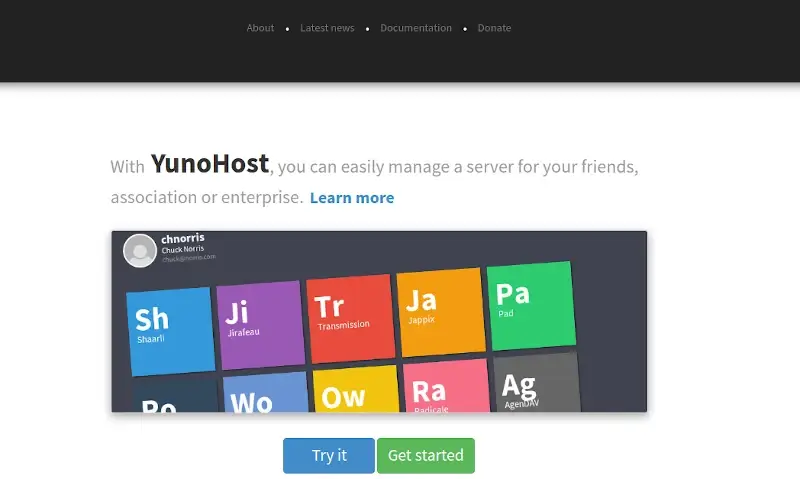
19. Sandstorm
Sandstorm is an open-source framework that makes deployment and management of self-hosted web applications easier. It is tailored to provide a safe, user-friendly environment for executing multiple web applications.
Sandstorm allows you to install apps such as Davros, Nextcloud, and WordPress that can store and sync your files. You can also share your data with others by generating and distributing share links or inviting them to join your server.
With configurations such as encryption, password protection, expiration dates, and audit logs, you can manage who can access your information and how. Since Sandstorm is a self-hosted solution, you have control over where your data is stored and processed.
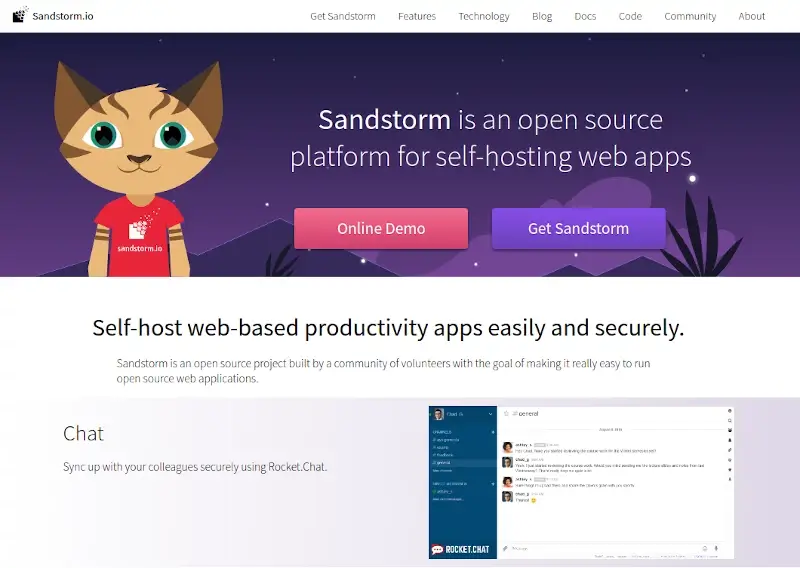
20. Syncthing
Syncthing is an ideal option for users who value privacy and want a decentralized file synchronization solution to share files across different devices without relying on third-party servers.
Its ease of use, encryption settings, and cross-platform compatibility make it a popular choice among tech-savvy users for secure file syncing.
Key features include:
- Users can choose which folders are synced between devices, allowing for selective synchronization depending on individual requirements.
- It provides encryption to ensure that files are encrypted throughout transmission and protected from illegal access.
- Any changes made to files on any synchronized device are automatically disseminated to other linked devices in real-time.
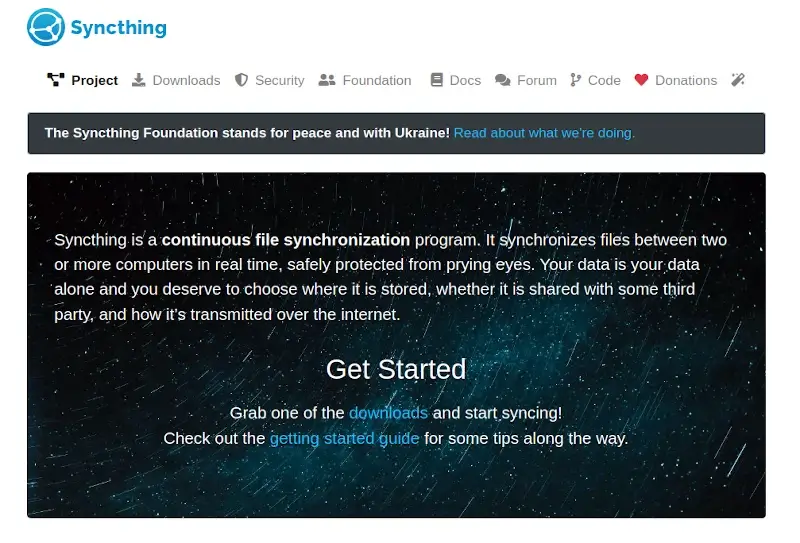
21. FileCloud
FileCloud is a file-sharing, syncing, and storage software solution, primarily a self-hosted file-sharing and sync platform that enables enterprises to securely manage their files in their environment, both on-premises and in the cloud.
FileCloud is designed for enterprises that value data protection and control. Its self-hosted nature appeals to those seeking greater control over their file-sharing infrastructure while adhering to rules and security standards.
Key features include:
- Teams can work together on files, enabling version control and a smooth workflow.
- It allows real-time synchronization among devices, guaranteeing that the most recent version of files is available from any location.
- With customized access rights, users can effortlessly share files and folders within or externally.
- It places a strong emphasis on security with features such as encryption, two-factor authentication, and data loss prevention (DLP) technologies.
- Filecloud provides seamless integration with various third-party apps, including Gmail, Outlook, Microsoft Teams, and cloud services such as DigitalOcean, Alibaba Cloud, and Oracle Cloud.
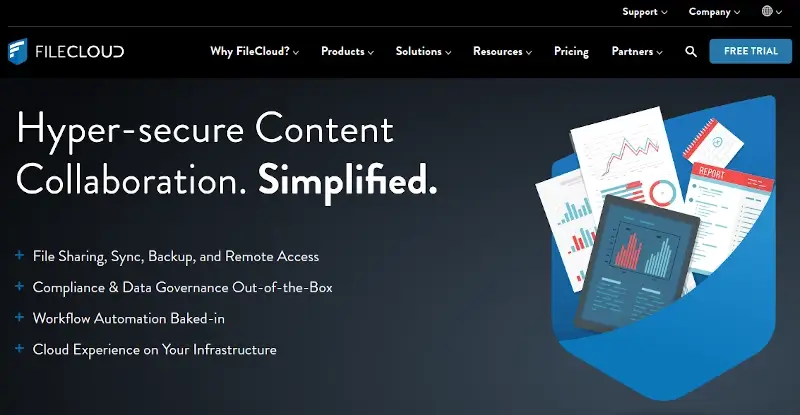
22. Cloud Storage Server
Cloud Storage Server is an extensible, self-hosted, and open-source cloud storage API. The base server uses a complete file system similar to those utilized by B2 Cloud Storage, OpenDrive, Amazon Cloud Drive, and other providers.
In addition, Cloud Storage Server works well in conjunction with cloud backup and cloud storage tools. Sharing files using the Cloud Storage Server entails making use of the API’s endpoints and methods to support file sharing between users or apps.
The actual method may differ based on the API implementation and its capabilities, but here’s a rough overview of how file sharing can work:
- Users must typically authenticate themselves with the cloud storage server using authentication tokens, API keys, or other authentication procedures before sharing data.
- Using the API, users upload files to their personal storage space on the cloud storage server. This entails making requests to the file upload API endpoints, specifying the file and its attributes (e.g., name, size, permissions).
- The API may have different methods for creating shareable links or access tokens for certain files or folders. These links or tokens contain information that allows other people to access the shared files.
- Once the links or access tokens have been generated, users can share them via email, messaging apps, or their application interfaces.
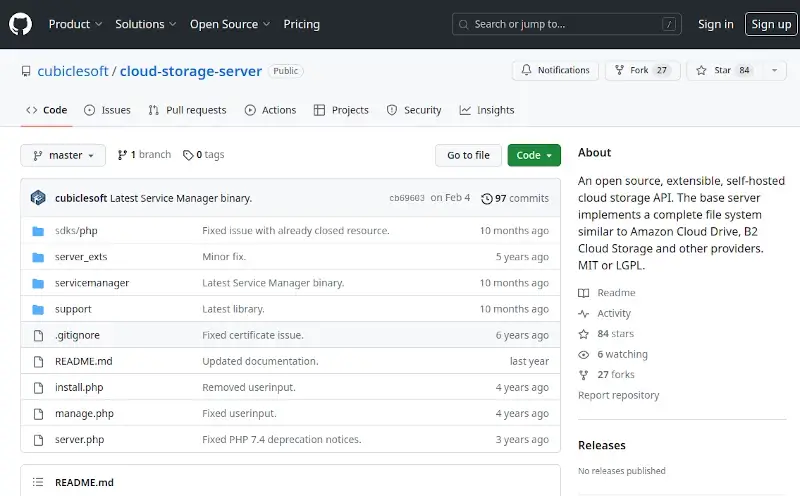
Conclusion
We hope this post has assisted you in selecting the best open-source file-sharing platform for your enterprise or personal use. What is your preferred free, open-source cloud file-sharing platform?
